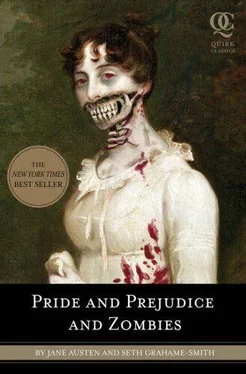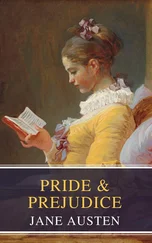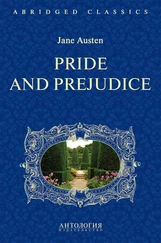Elizabeth was now most heartily sorry that she had, from the distress of the moment, been led to make Mr. Darcy acquainted with their fears for her sister; for since her marriage would so shortly give the proper termination to the elopement, they might hope to conceal its unfavourable beginning from all those who were not immediately on the spot.
She had no fear of its spreading farther through his means. There were few people on whose secrecy she would have more confidently depended; but, at the same time, there was no one whose knowledge of a sister’s frailty would have mortified her so much-not, however, from any fear of disadvantage to herself, for she expected there would be no more civilities between them. Had Lydia’s marriage been concluded on the most honourable terms, it was not to be supposed that Mr. Darcy would connect himself with a family where, to every other objection, would now be added an alliance with a man whom he so justly scorned.
“What a triumph for him,” she often thought, “could he know that the proposals which she had proudly spurned only four months ago, would now have been most gladly and gratefully received!” He was as generous, she doubted not, as the most generous of his sex; but while he was mortal, there must be a triumph.
She began now to comprehend that he was exactly the man who, in disposition and talents, would most suit her. His understanding and temper, though unlike her own, would have answered all her wishes. It was an union that must have been to the advantage of both; by her aggression and liveliness, his introversion might have been softened, his manners improved; and from his judgement, information, and knowledge of the world, she must have received benefit of greater importance. What a pair of warriors they would make! Sparring by the river at Pemberley; crossing the Altai Mountains in a fine coach on their way to Kyoto or Shanghai-their children eager to master death as their mother and father had before them.
But no such happy marriage could now teach the admiring multitude what connubial felicity really was. An union of a different tendency, and precluding the possibility of the other, was soon to be formed in their family. How Wickham and Lydia were to be supported in tolerable independence, she could not imagine. But how little of permanent happiness could belong to a couple who were only brought together by an abduction, an attempted murder, and a carriage accident, she could easily conjecture.
Mr. Gardiner soon wrote again to his brother. The principal purport of his letter was to inform them that Mr. Wickham had resolved on quitting the militia.
It was greatly my wish that he should do so, as soon as his marriage was fixed on. And I think you will agree with me, in considering that he can do little good in the fight against the zombies given his present condition. It is Mr. Wickham’s intention to enter the priesthood; and among his former friends, there are still some who are able and willing to assist him in this endeavour. He has the promise of joining a special seminary for the lame in northernmost Ireland. It is an advantage to have it so far from this part of the kingdom. He promises fairly; and I hope among different people, where they may each have a character to preserve, they will both be more prudent. I have written to Colonel Forster, to inform him of our present arrangements, and to request that he will satisfy the various creditors of Mr. Wickham in and near Brighton, with assurances of speedy payment, for which I have pledged myself. And will you give yourself the trouble of carrying similar assurances to his creditors in Meryton, of whom I shall subjoin a list according to his information? He has given in all his debts; I hope at least he has not deceived us. I understand from Mrs. Gardiner, that my niece is very desirous of seeing you all before she leaves for Ireland. She is well, and begs to be dutifully remembered to you and your mother.
Yours, etc.,
E. GARDINER.
Mr. Bennet and his daughters saw all the advantages of Wickham’s removal from England as clearly as Mr. Gardiner could do. But Mrs. Bennet was not so well pleased with it. Lydia’s being settled in the north, just when she had expected most pleasure and pride in her company, was a severe disappointment; and, besides, it was such a pity that Lydia should be taken from a regiment where she was acquainted with everybody, and could instruct soldiers in new methods of annihilating the walking dead.
“She is so fond of Mrs. Forster,” said she, “it will be quite shocking to send her away! And there are several of the young men, too, that she likes very much.”
His daughter’s request, for such it might be considered, of being admitted into her family again before she set off for the North, received at first an absolute negative. But Jane and Elizabeth, who agreed in wishing, for the sake of their sister’s feelings and consequence, that she should be noticed on her marriage by her parents, urged him so earnestly yet so rationally and so mildly, to receive her and her husband at Longbourn, as soon as they were married, that he was prevailed on to think as they thought, and act as they wished. And their mother had the satisfaction of knowing that she would be able to show her married daughter in the neighbourhood before she was banished to St. Lazarus Seminary for the Lame at Kilkenny. When Mr. Bennet wrote again to his brother, therefore, he sent his permission for them to come; and it was settled, that as soon as the ceremony was over, they should proceed to Longbourn. Elizabeth was surprised, however, that Wickham should consent to such a scheme, considering what a dreadful visage he must present in his sorry condition.
THEIR SISTER’S WEDDING DAY arrived; and Jane and Elizabeth felt for her probably more than Lydia felt for herself. The carriage was sent to meet them, and they were to return in it by dinner-time. Their arrival was dreaded by the elder Miss Bennets, and Jane more especially, who imagined the feelings which would have attended herself, had she been forced to marry her crippled abductor, and was wretched in the thought of what her sister must endure for the rest of her miserable life.
They came. The family were assembled in the breakfast room to receive them. Smiles decked the face of Mrs. Bennet as the carriage drove up to the door; her husband looked impenetrably grave; her daughters, alarmed, anxious, uneasy.
Lydia’s voice was heard in the vestibule; the door was thrown open, and she ran into the room. Her mother stepped forwards, embraced her, and welcomed her with rapture; gave her hand, with an affectionate smile, to Wickham, who was carried through the door by servants. Leather straps kept him fastened to his traveling bed, which was redo-lent of stale piss; and Elizabeth, who had been expecting as much, was nevertheless shocked at the severity of his injuries. His face remained bruised-his eyes half closed with swelling. His legs were broken and bent beyond hope, and his speech much affected. “Dear, sweet Wickham!” cried Mrs. Bennet. “What a fine priest you shall make! What a delightful husband!” Wickham replied with a polite moan.
Their reception from Mr. Bennet, to whom they then turned, was not quite so cordial. His countenance rather gained in austerity; and he scarcely opened his lips. The stench of Wickham’s bed, indeed, was enough to provoke him. Elizabeth was disgusted, and even Miss Bennet was shocked. Lydia was Lydia still; untamed, unabashed, wild, noisy, and fearless. She turned from sister to sister, demanding their congratulations; and when at length they all sat down-save Wickham, who was placed by the fire-looked eagerly round the room, took notice of some little alteration in it, and observed, with a laugh, that it was a great while since she had been there.
Читать дальше












